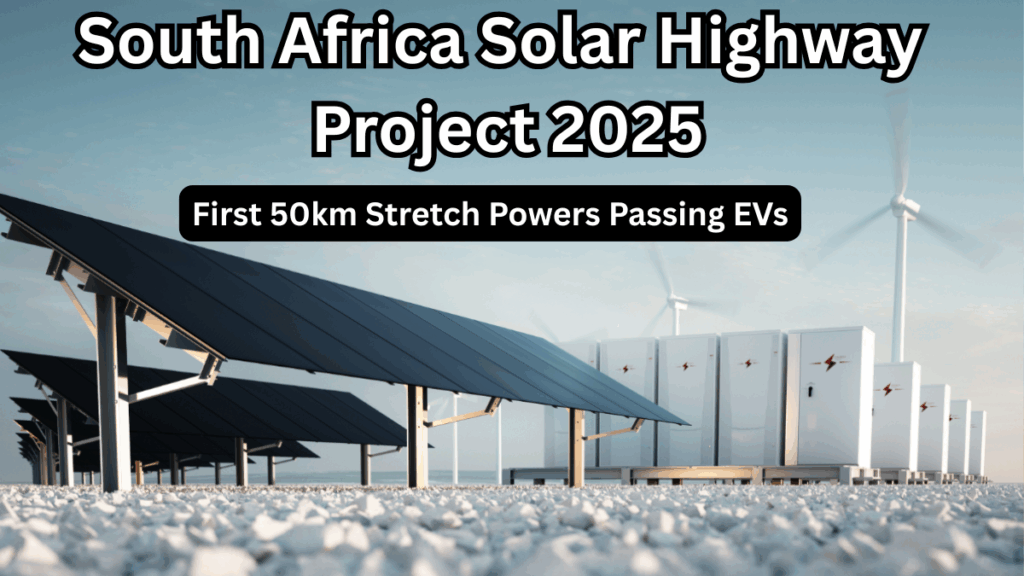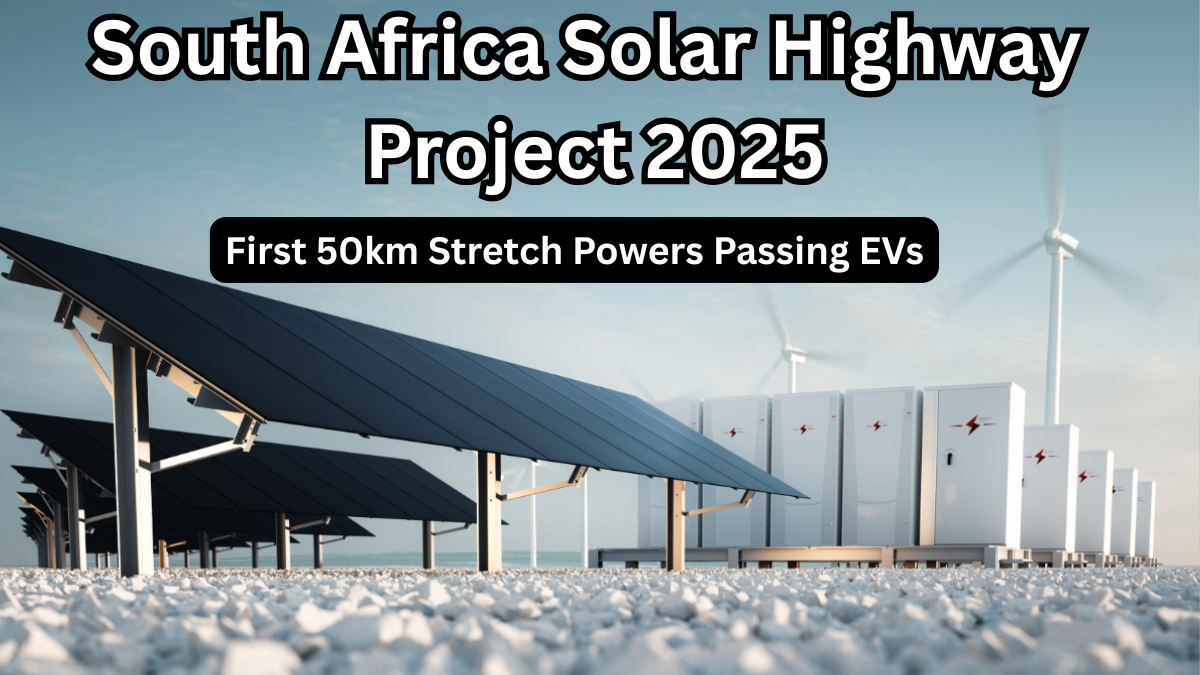South Africa is taking a bold leap toward a greener future with the launch of its Solar Highway 2025 project. The first 50km stretch has been officially opened, making it one of the most ambitious renewable energy initiatives on the African continent. This innovative infrastructure is designed to power South Africa EV charging road systems directly, giving electric vehicles the ability to recharge while in motion.
This milestone doesn’t just signal progress for the transport sector—it highlights South Africa’s commitment to renewable energy and sustainable mobility.

What is the Solar Highway 2025 Project?
The Solar Highway 2025 is a cutting-edge road infrastructure project where solar panels are embedded along and above the highway. These panels generate clean energy that can be transferred wirelessly to electric vehicles (EVs) traveling on the route.
Key Features
-
50km pilot stretch completed in 2025
-
Integrated wireless EV charging lanes
-
Solar panels positioned both roadside and overhead
-
Direct contribution to South Africa’s renewable energy goals
How the Solar Highway Works
The concept behind the South Africa EV charging road is simple yet groundbreaking:
-
Solar energy collection: Photovoltaic panels collect sunlight
-
Wireless charging transfer: Special coils installed beneath the road transmit energy wirelessly to EV batteries
-
Smart energy management: The system adjusts energy distribution depending on the vehicle type and traffic density
This technology means drivers won’t need to stop frequently for charging, reducing “range anxiety” and encouraging wider EV adoption.
Benefits of the Solar Highway 2025
The project is not just about transportation—it’s about transforming the nation’s energy and mobility sectors.
| Benefit | Impact |
|---|---|
| Clean Energy | Reduces reliance on fossil fuels and lowers emissions |
| Convenience | EVs charge while driving, eliminating downtime |
| Economic Growth | Boosts renewable energy investment and green jobs |
| Scalability | Pilot project can be extended to longer routes nationwide |
Why It Matters for South Africa
South Africa has been facing challenges with power supply and load shedding. By integrating transport infrastructure with renewable energy, the country addresses two issues at once:
-
Supporting green mobility for EV drivers
-
Strengthening the renewable energy grid for future generations
This project also places South Africa as a leader in Africa’s clean energy revolution.
Future Expansion Plans
Authorities plan to expand beyond the first 50km and eventually connect major highways, creating a nationwide South Africa EV charging road network. If successful, this model could be replicated in other African countries, paving the way for a sustainable mobility revolution.
FAQs
Q1. What makes the Solar Highway 2025 unique?
The project combines renewable energy with transportation by enabling wireless EV charging directly on the highway. It’s the first large-scale initiative of its kind in Africa.
Q2. Can all electric vehicles use the South Africa EV charging road?
Currently, only EVs with wireless charging compatibility can benefit. However, most new models released in the coming years are expected to support this feature.
Q3. Will this project help reduce load shedding?
Yes, the Solar Highway 2025 generates its own energy, easing demand on the national grid and contributing to renewable power supply.
Q4. What is the long-term vision of the project?
The goal is to build a nationwide network of solar-powered EV charging highways that make electric mobility practical and sustainable for all South Africans.
Click here to learn more
